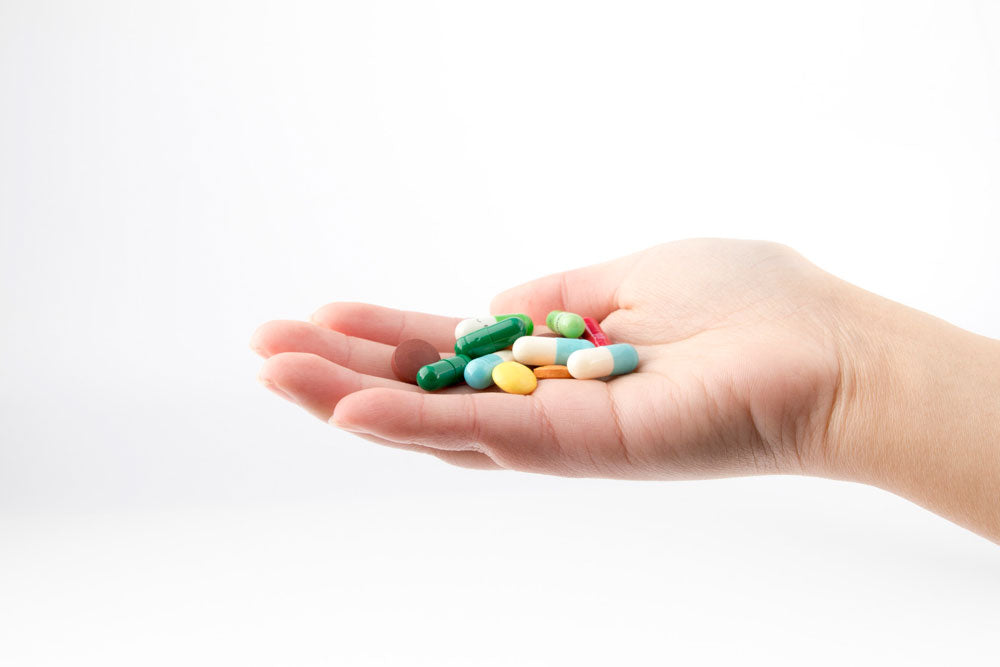In the treatment of diabetes, there are always many rumors. For example, diabetes means that you cannot eat sugar, bitter melon can reduce blood sugar, drinking tea can reduce blood sugar, etc. Today, I will summarize the common rumors in the process of sugar control. If you believe it, then Nuo Nuo also has to worry about your blood sugar.
Misunderstanding 1: Only go to the doctor if complications occur
In the treatment of diabetes, there are often two types of diabetics:
The first category is those who perform fairly well. They are willing to take hypoglycemic drugs and take insulin but do not test their blood sugar. They never care about their blood sugar fluctuations. Complications still appear despite taking medicine and injections.
The second category is that many people with diabetes only have high blood sugar in the early stages of diabetes and do not have any conscious symptoms. They think diabetes is not painful or itchy, so they relax their vigilance. They only go to the doctor when complications occur that affect their lives.
This is a common problem among people with diabetes: control blood sugar only when complications arise. This misses the best period for early treatment.
The treatment of simple hyperglycemia is simple and convenient, and the medical cost is low. Early blood glucose reaching the target can better prevent the occurrence of complications. If you wait until complications occur before treatment, it will not only significantly reduce the quality of life, but also cause a higher disability rate.
Moreover, it will also increase huge economic costs. According to surveys, 80% of the medical expenses of Chinese diabetes patients are used to treat complications.
Misunderstanding 2: Changing the type of insulin without authorization
In many follow-up surveys on diabetes, we found that the reason why many patients have poor blood sugar control is that they change the type of insulin without authorization. Diabetic friend Xiao Wang, the doctor’s order is: 30 doses of premixed insulin analogue, one shot in the morning and one in the evening.
However, after using this treatment plan, his blood sugar went up and down, and he initially thought it was a problem with his diet and exercise. Later, he discovered that it was because Xiao Wang did not go to the hospital in time after using up 30 grams of premixed insulin analog. The hospital continued to collect medicines and continued to inject the remaining intermediate-acting human insulin at home according to the original plan. In Xiao Wang's opinion, he thought that the effects of insulin were the same.
It seems that Tang Xiaonuo needs to do some popular science. In fact, just like cold medicines are divided into different types, the medicines you take are also different depending on the type of cold you have, whether it is a wind-cold cold or a wind-heat cold. Wrong use of medicines may aggravate the cold.
Similarly, insulin is divided into short-acting, medium-acting, long-acting, premixed, etc. The doctor will choose the type of insulin injection that suits you based on your blood sugar situation, so that your blood sugar can reach the standard. You cannot change the type of insulin on your own initiative.
Misunderstanding 3: Once blood sugar is under control, you can stop taking medication on your own
Many diabetes patients who have been to the outpatient clinic have adhered to the hypoglycemic treatment plan for a period of time. After taking the medicine prescribed by the doctor, their blood sugar seems to be normal. They think that the diabetes is cured and they stop taking all the medicine without permission. This is a very dangerous behavior. .
This is because there is currently no drug in the world that can cure diabetes. Once diagnosed, lifelong treatment is required. The so-called diabetes is cured only when the blood sugar is controlled within the normal range under drug control, or the "honeymoon period" of diabetes is reached. "You can control your blood sugar by taking medicine without injections, but that doesn't mean you are really cured."
You need to consult a doctor at a regular hospital to determine whether the dosage of medication can be reduced, discontinued, or adjusted. You cannot stop medication on your own.
Because blood sugar will rise suddenly after stopping the drug, diabetic ketosis may easily occur, which may even be life-threatening.
Misunderstanding 4 - Increase the dosage of medicine when eating out
I have encountered several such cases. Some people with diabetes know that eating and drinking is strictly prohibited due to diabetes, but they cannot control their temptation to eat and drink, and increase the dosage of oral medications and insulin without authorization.
This will not only cause your blood sugar to fluctuate greatly, but in the long run will increase the incidence of complications and can easily lead to hypoglycemia coma, with disastrous consequences.
Myth 5: The lower the blood sugar control, the better
Everyone generally pays more attention to high blood sugar and believes that the lower the blood sugar can be controlled, the better. Especially elderly patients with complications blindly control their blood sugar within the normal range, thinking that only in this way can they prevent complications and achieve longevity.
In fact, due to the decreased perception of hypoglycemia in elderly patients, asymptomatic hypoglycemia is likely to occur when blood sugar is controlled too strictly, which can lead to life-threatening consequences.
Therefore, people with diabetes should determine their blood sugar control standards according to their own conditions under the guidance of a doctor. Especially for elderly patients with diabetes, the control standards can be relaxed appropriately.
If there are serious cardiovascular and cerebrovascular complications, fasting blood sugar should be controlled at around 7.0mmol/l, and blood sugar 2 hours after a meal should be controlled at around 10.0mmol/l.
Different people with diabetes have different blood sugar control standards. Click "What are the blood sugar control standards for diabetics? Read it in one table" to see how far you can control it?

